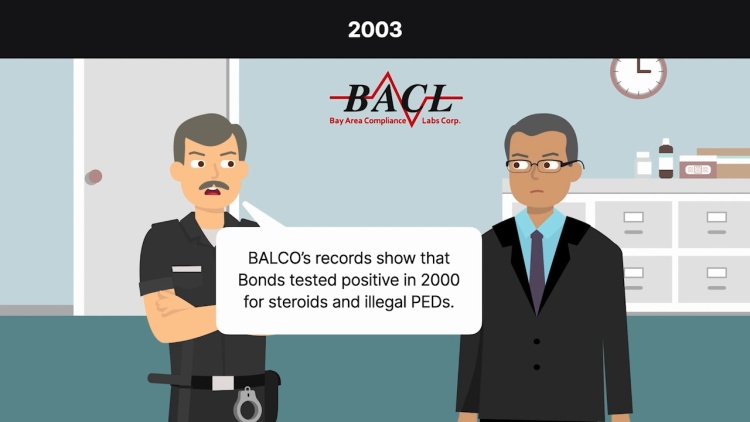United States v. Bonds
United States Court of Appeals for the Ninth Circuit
608 F.3d 495 (2010)
- Written by Jenny Perry, JD
Facts
In 1998, Barry Bonds (defendant), a Major League Baseball player, started working out with an old high school friend, Greg Anderson. Anderson provided Bonds with certain substances to aid in his training, including protein shakes and supplements. On several occasions, at Anderson’s suggestion, Bonds gave Anderson blood and urine samples, which Anderson took to BALCO Laboratories, Inc. (BALCO) for analysis. The samples were collected at Bonds’s house, which was close to BALCO’s facilities, enabling prompt delivery, and stored in vials Anderson brought for that purpose. Bonds would not permit anyone but his personal doctor to draw the blood samples. The federal government (plaintiff) began investigating BALCO in 2003, suspecting it of distributing unlawful performance enhancing drugs (PED) to athletes and altering the results of drug tests. The government alleged that records obtained from BALCO established that Bonds tested positive for PED. Bonds testified before a grand jury in the BALCO investigation that he believed the samples he gave to Anderson would be used to find nutritional deficiencies and that Anderson told him he tested negative for PED. Anderson later pleaded guilty and admitted to distributing PED to professional athletes. In 2008, Bonds was indicted on charges of perjury and obstruction of justice based on allegations that he falsely denied having taken PED received from Anderson and misrepresented the time frame when he accepted supplements from him. Bonds filed a motion in limine, seeking to exclude certain BALCO lab results and log sheets from evidence as inadmissible hearsay. Anderson refused to testify against Bonds, so the government argued that a BALCO associate’s testimony affirming that Anderson identified the samples as having come from Bonds were admissible as statements of an agent. The trial court ruled the evidence inadmissible.
Rule of Law
Issue
Holding and Reasoning (Schroeder, J.)
Dissent (Bea, J.)
What to do next…
Here's why 907,000 law students have relied on our case briefs:
- Written by law professors and practitioners, not other law students. 47,100 briefs, keyed to 996 casebooks. Top-notch customer support.
- The right amount of information, includes the facts, issues, rule of law, holding and reasoning, and any concurrences and dissents.
- Access in your classes, works on your mobile and tablet. Massive library of related video lessons and high quality multiple-choice questions.
- Easy to use, uniform format for every case brief. Written in plain English, not in legalese. Our briefs summarize and simplify; they don’t just repeat the court’s language.





